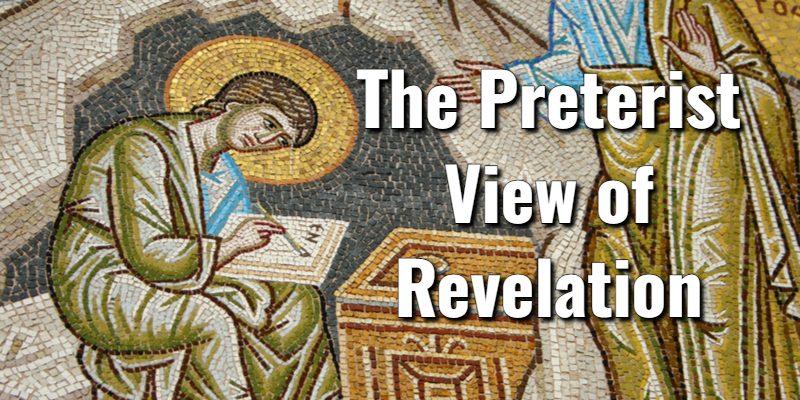The Preterist view of Revelation asserts that many of the prophecies in Revelation were fulfilled in the past. Preterism, derived from the Latin word “preter,” meaning “past,” holds that a significant portion of the Book of Revelation pertains to events that transpired during the early Church, particularly during the tumultuous period of the Roman Empire. Advocates of Preterism argue that the book was written by the Apostle John around AD 95 during the reign of the Roman Emperor Domitian. They commonly believe that many of the book’s prophecies were fulfilled in the first century, particularly during the Roman-Jewish War and the subsequent destruction of the Jerusalem Temple in AD 70. Representing one of the most common of the different views, Christians who subscribe to the Preterist view of Revelation often cite the below Bible verses.
The Preterist View of Revelation
Preterist View of Revelation: Key Bible Verses
Key Bible verses:
- Revelation 1:1: “The Revelation of Jesus Christ, which God gave unto him, to shew unto his servants things which must shortly come to pass.”
Preterists emphasize the phrase “must shortly come to pass” as evidence that the events in Revelation were imminent and would happen soon after the book’s writing.
- Revelation 1:3: “Blessed is he that readeth, and they that hear the words of this prophecy, and keep those things which are written therein: for the time is at hand.”
Preterists argue that this verse underscores the idea that the prophecies were meant for the immediate audience and not for distant future generations.
- Revelation 11:8: “And their dead bodies shall lie in the street of the great city, which spiritually is called Sodom and Egypt, where also our Lord was crucified.”
Preterists contend that the reference to “our Lord was crucified” points to Jerusalem as the city where these events would unfold, linking this prophecy to the Roman siege and destruction of Jerusalem in AD 70.
- Revelation 17:10: “And there are seven kings: five are fallen, and one is, and the other is not yet come; and when he cometh, he must continue a short space.”
Preterists interpret these seven kings as a reference to the first seven Roman emperors, with the fifth emperor being Nero and the “one is” referring to the reigning emperor at the time, which would have been Domitian.
- Revelation 22:6: “And he said unto me, These sayings are faithful and true: and the Lord God of the holy prophets sent his angel to shew unto his servants the things which must shortly be done.”
This verse reiterates the theme of imminence, emphasizing that the events prophesied in Revelation were to occur in the near future.
Lord's Library is a Christian resource hub. Our editors use a variety of internet research methods like search engines, audio and video, AI, consultations with ministry leaders in the field, and more. Lord's Library should never be a substitute for reading your Bible daily as the Scriptures are to be our final authority on all matters. Lord's Library participates in affiliate programs. We may make a small commission from products purchased through this resource.
- The 4 Best Timothy Commentaries to Read in 2024 - October 15, 2024
- The 5 Best Timothy Bible Study Books to Read in 2024 - October 15, 2024
- Isaiah 64:6 Meaning: Commentary on an Important Scripture - October 14, 2024













